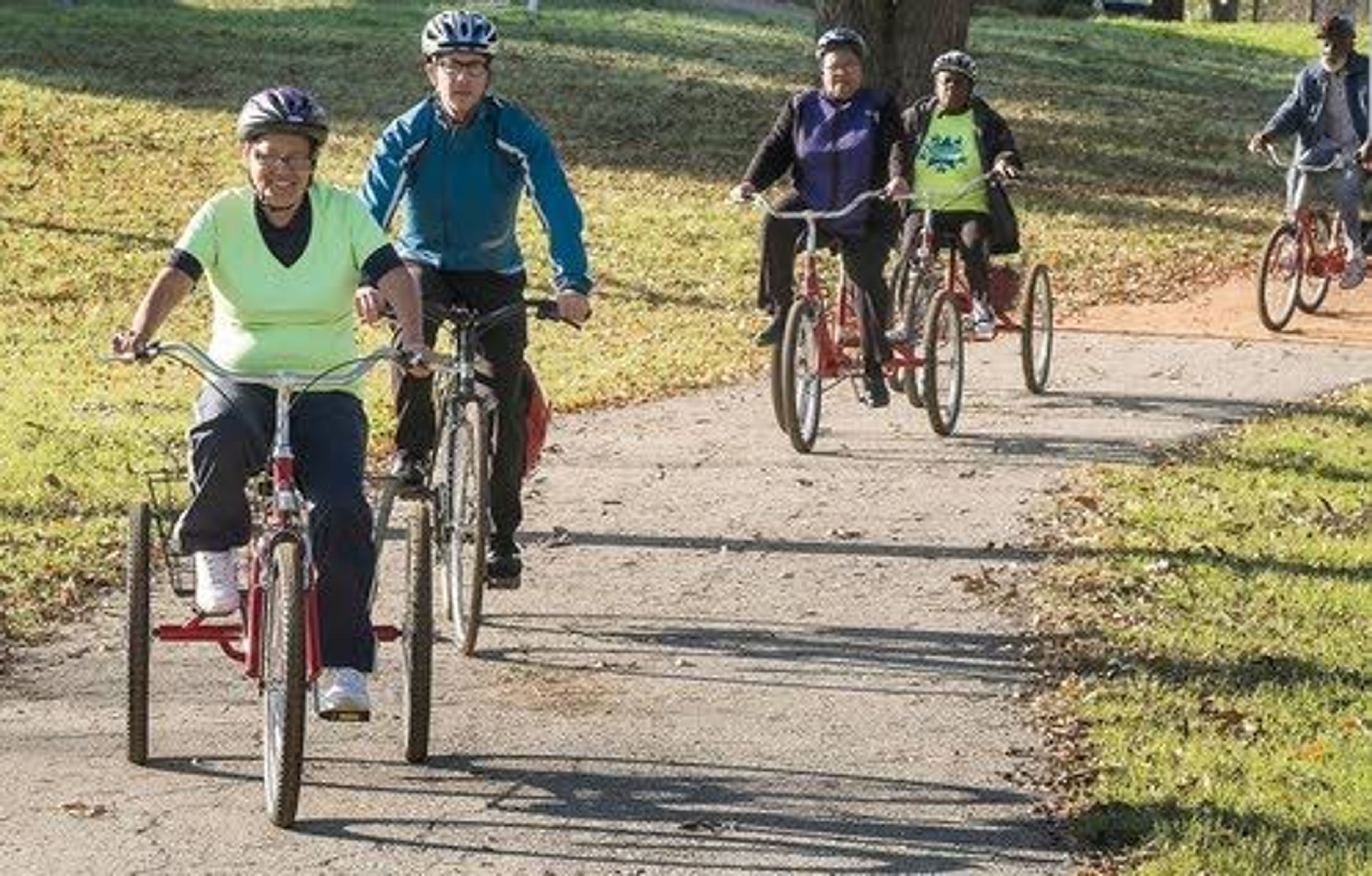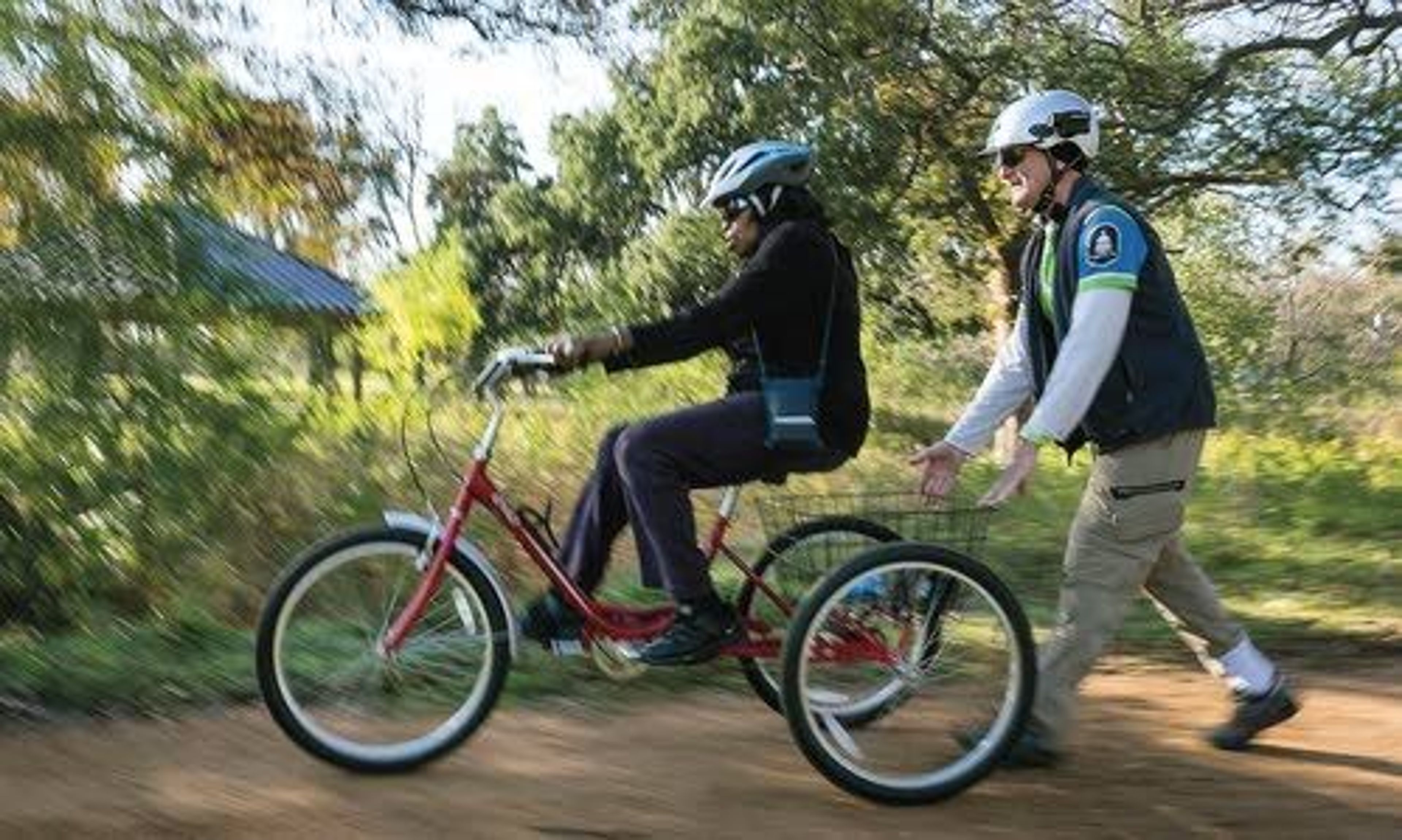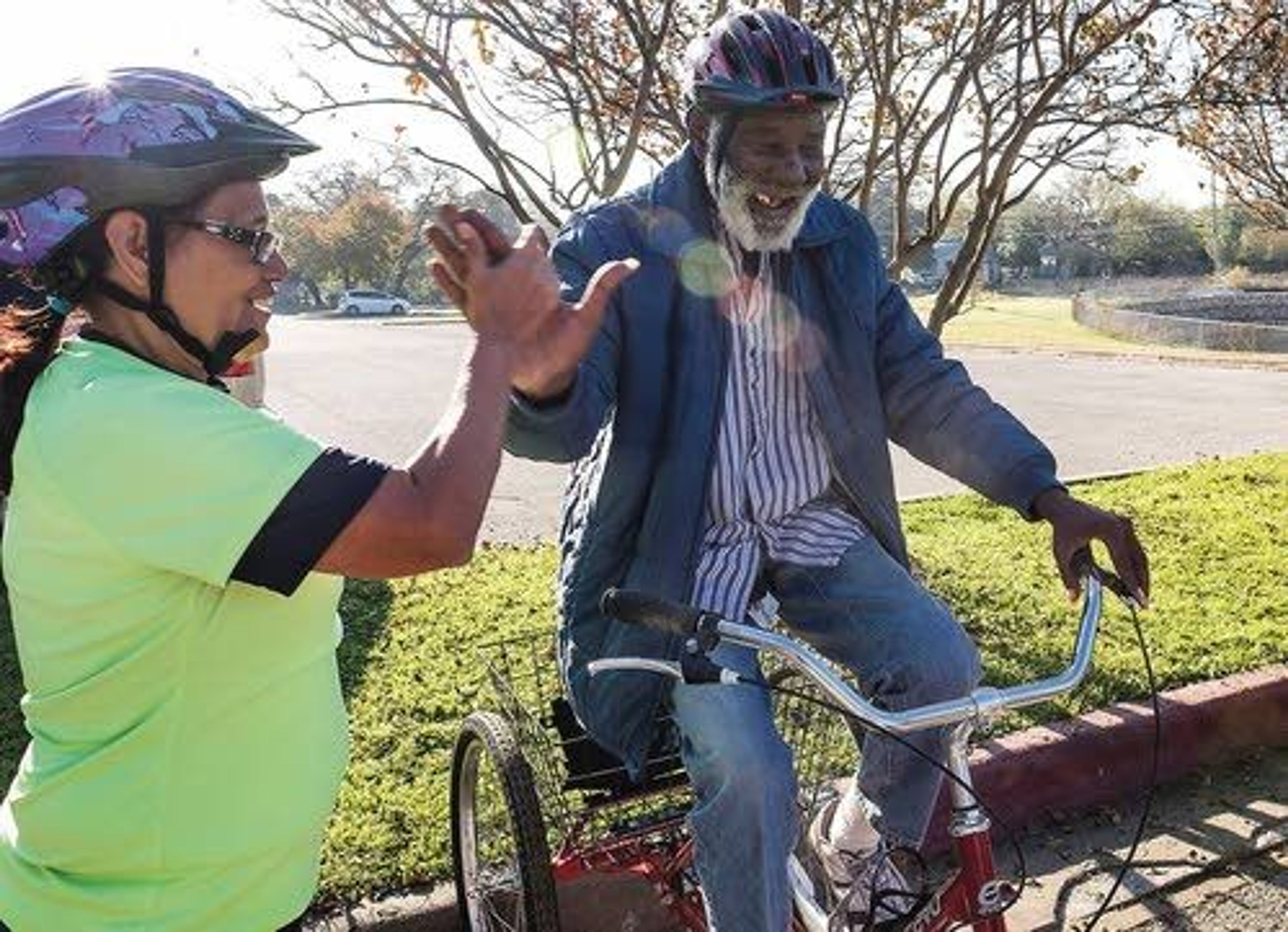Texas senior center gets folks back to cycling
AUSTIN, Texas - It took a while, but James Maxwell conquered the wobbles, mastered the brakes and solved the steering.
Five months into a free class at the Conley-Guerrero Senior Activity Center, the 68-year-old confidently pedaled a bright red, adult-sized tricycle out of the parking lot and down a gravel trail. Now he's dreaming about getting a bike of his own so he can ride alongside his grandchildren.
Most people consider learning to ride a bicycle a childhood rite of passage. But for those who never learned, or who haven't done it in decades, a two-wheeled spin around the neighborhood can seem daunting.
That's why Christopher Stanton, founder and executive director of the nonprofit Ghisallo Cycling Initiative, spearheaded the creation of a program designed to get seniors back on bicycles.
"Seniors are like kids," Stanton says. "They're a group that needs extra instruction and extra assistance, but they're marginalized. People think seniors can't do things because they're not physically able. That's really not the case."
The classes are open to anyone at the Conley-Guerrero Center. Nearly 50 signed up for the pilot program, and about half of that graduated earlier this month. They ranged in age from 60 to 88, and most were women.
The class begins with a safety briefing. Participants then ride one of the program's five trikes around the parking lot, where instructors assess their skills and make sure they can stop and steer safely. Those who pass will advance to an adjacent gravel hike-and-bike trail, and eventually hit the protected bike lane on Pedernales Street. One group took an outing to a nearby H-E-B grocery store.
"Remember you have your brake locks on," instructor Preston Tyree called out one day earlier this month, as a group of seniors prepared to roll out. "Now release them. Stay in the middle of the trail."
The cyclists picked up steam. Some hooted with glee. A volunteer ran alongside one senior, holding her bike steady.
"I tell (other seniors) 'You can do it. Just try it,' " said Bertha Sellers, 75, who got back on a bike recently for the first time in more than 50 years. Now she wants to run errands in the neighborhood and go sightseeing.
"The only bike I've been on since I was a kid was an exercise bike, where it stands still," Sellers said. "I learned if I focus on what I'm doing and forget about being frightened, I can do it."
Cycling, she said, makes her feel free. Plus she knows she'll impress her son, an expert cyclist who has no idea she's been taking the classes.
"At the beginning it was scary, especially going up hills and coming down," said Maria Pena, 63. "But I enjoyed it and it helps strengthen my arms and legs."
Eventually, program organizers hope that seniors who take the class will be able to check out the trikes and use them to run nearby errands. So far, the Conley-Guerrero Center is the only senior activity center offering the class, although organizers hope to expand to other locations.
Stanton came up with the idea after watching a TED talk about a biking program for seniors in Europe. Chameleon Cold-Brew helped pay for the bikes, and youth involved with the Ghisallo Cycling Initiative assembled them. Volunteer class leaders are certified by the League of American Bicyclists; most of them come from Bike Austin.
Cycling not only gives seniors with mobility issues another option for getting around, it provides exercise. The low-slung, single-speed three-wheelers minimize the risk of falling. The bikes are equipped with roomy rear baskets, suitable for toting groceries.
"It gives a sense of freedom to the seniors," said Mercedes Feris, executive director of Bike Austin, which teamed with the Ghisallo Cycling Initiative and the Austin Parks and Recreation Department to offer the program. This year's sessions have ended, but they'll resume in the spring.
The program works well at Conley-Guerrero because nearby trails and bikeways connect to the Sustainable Food Center, a MetroRail station and a grocery store. The terrain is almost perfectly flat, too.
Students have included a woman, who got off her power wheelchair and rode a trike around the parking lot, and an 88-year-old woman who took her first pedal strokes.
"It's not about bikes; it's about making things easier for them. It's about access and opportunity," Stanton said.
For Maxwell, it's about perseverance, too.
At first, he just couldn't make it work. He swayed like a sailboat in the wind. He had trouble stopping. His steering was off. "I had to learn how to balance myself," he says.
He kept trying, though, and after attempts on three different days, he passed the skills assessment and instructors let him move onto the trail and then the pavement. When he did, something clicked. He smoothly glided his trike to the front of the pack.
When he picked up his certificate of completion at a graduation ceremony earlier this month, a cheer rose from the crowd and he grinned broadly.
Look for him on a trail near you.
TNS









